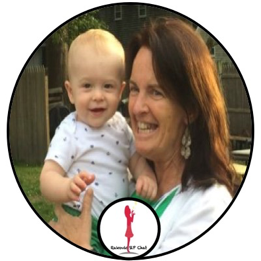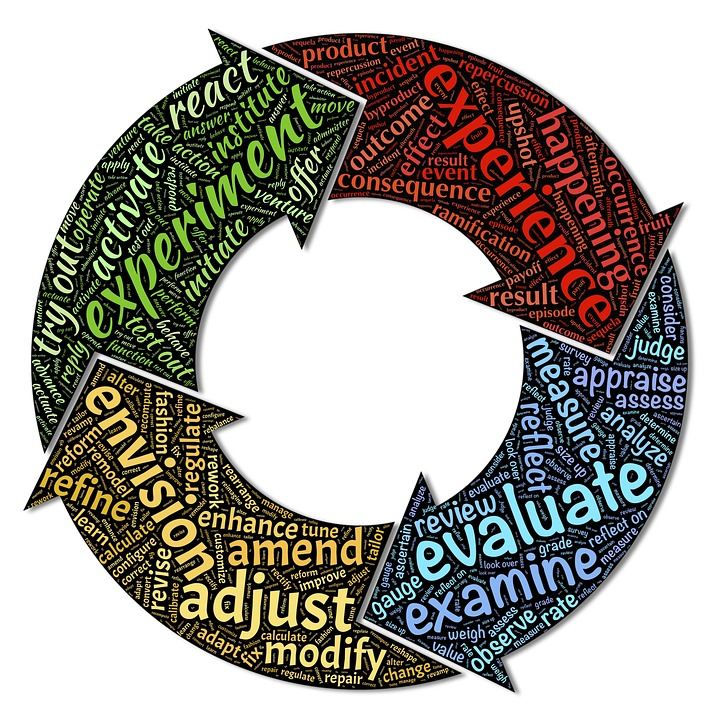Recently on an emergency trip to the dentist, I complained that as I was getting older my teeth were falling apart and I lamented the aging process. However one of the good things about working in the field of education/rehabilitation for nearly 40 years is that I have a better appreciation for the role that research can and should play into our practice.
My husband is a science teacher and as such frequently discusses with his students the scientific process of developing a theory, formulating a hypothesis, setting up conditions to study or prove the hypothesis. It is a study of questions, evaluation, and analysis of data. Each step of this process must be carefully done to come up with information that is using the right questions, the correct set up of the experiment, the careful collection of data and finally the analysis.
My methods of speech and language treatment have changed based on the new research that has been conducted. The American Speech and Language Association provides us with information on the latest research as part of the benefits of being Nationally Certified as a speech and language pathologist.
Some of the shifts in my thinking have been:
Articulation
- Previously I would see my students with articulation disorders in a group usually chosen because of their grade level and time I could take them and it would be for thirty minutes perhaps twice a week
- Currently, I see my articulation students individually for a short time multiple days per week.
- Benefits:
- The student is not hearing error sounds from other students
- They are having more repetitions of their sound as there is no need for turn-taking
- They are out of their class for a minimal time so that the teachers are less likely to have difficulties with scheduling
- The most important benefit is that I am seeing more significant progress.
Apraxia
- Previously: I would administer a test designed to evaluate apraxia.
- Currently: I administer a battery of tests including language tests to evaluate syntax and expressive language skills. My assessment includes looking dynamically at speech and the kinds of cueing and support that is needed.
- Benefits:
- I can pinpoint more accurately the student’s difficulties and strengths
- I can design my treatment to encompass all areas of difficulty, not just the speech component
- I can pinpoint the particular strategy or cue that is more likely to assist the student.
Reading
- Previously: Reading and writing are two of my personal passions. I love working with a child on these language-based skills but at times I was not as aggressive about the importance of my role in this process. Indeed there is even some fellow speech and language therapists who would say this is for other professions to work on.
- Now: Reading and writing are not hard-wired in the brain and therefore need to be taught directly. As speech and language pathologist we have the education and the knowledge of the language process for teaching these skills. Our background in language development, phonology, phonemic awareness, spelling, vocabulary, comprehension, composition, makes us a key player in the teaching of literacy skills. I have become more vocal and insistent about my role as part of a literacy team, in fact, presently in our state, there is legislation supporting the need for more education in the reading process and working with students with dyslexia. There is a partnership between the legislation, department of education and a university to provide graduate work to develop these skills and I am enrolled in this coursework.
- Benefits:
- We can assist the classroom teacher in designing programs that specifically address the key components of literacy.
- We can work collaboratively in the evaluation of a child’s literacy skills to root out the specific strengths and needs of the child’s individual profile and then implement an individualized system of instruction and practice.
- Literacy is one of the key skills needed for academic success. If we can build a good language foundation for our students we are not only impacting their oral expression but we are providing them a access to the general education curriculum.
AAC
- Previously: I am fortunate to have had the exposure to the use of AAC whether it was sign language, low-tech or high-tech augmentative systems through my undergraduate, graduate and post-graduate studies. However, the vocabulary that I would choose to instruct my students were often random with the first phrases often being ” I want” followed by a variety of nouns. This gave the students little exposure to other word forms and the ability to construct a variety of sentences for other purposes besides requesting.
- Now: Research has shown that there is a Core Vocabulary, words that can be used across contexts, that can give more power to a student if we are to teach these words. It will give the student the ability to comment, protest, participate in conversations, have an impact on their environment and create access to the curriculum.
- Benefits:
- More communication attempts on the part of the student as they have more words in their lexicon that can be used across contexts.
- Increased independence as the student is learning different syntax which enables them to not only respond to a question but also ask the question, make a comment or offer an opinion.
- In my treatment, I am seeing more novel constructions which enables me to have a window into a child’s inner language skills. So, for example, one little girl who was noticeably ill told me ” I need a doctor”. A paraprofessional was informing the teacher in a whisper that a student was going to be dismissed early and the child said: ” Don’t talk about me.”
These are but a few of the areas in which I have had some shifts in my clinical practice based on new research studies. It is important that we continue to review the literature, read our professional journals and be aware of the latest evidenced-based practices wherever we are in our career or whatever setting we are working in. Science is not just for the laboratory but it is for the trenches. We owe it to our clients.


